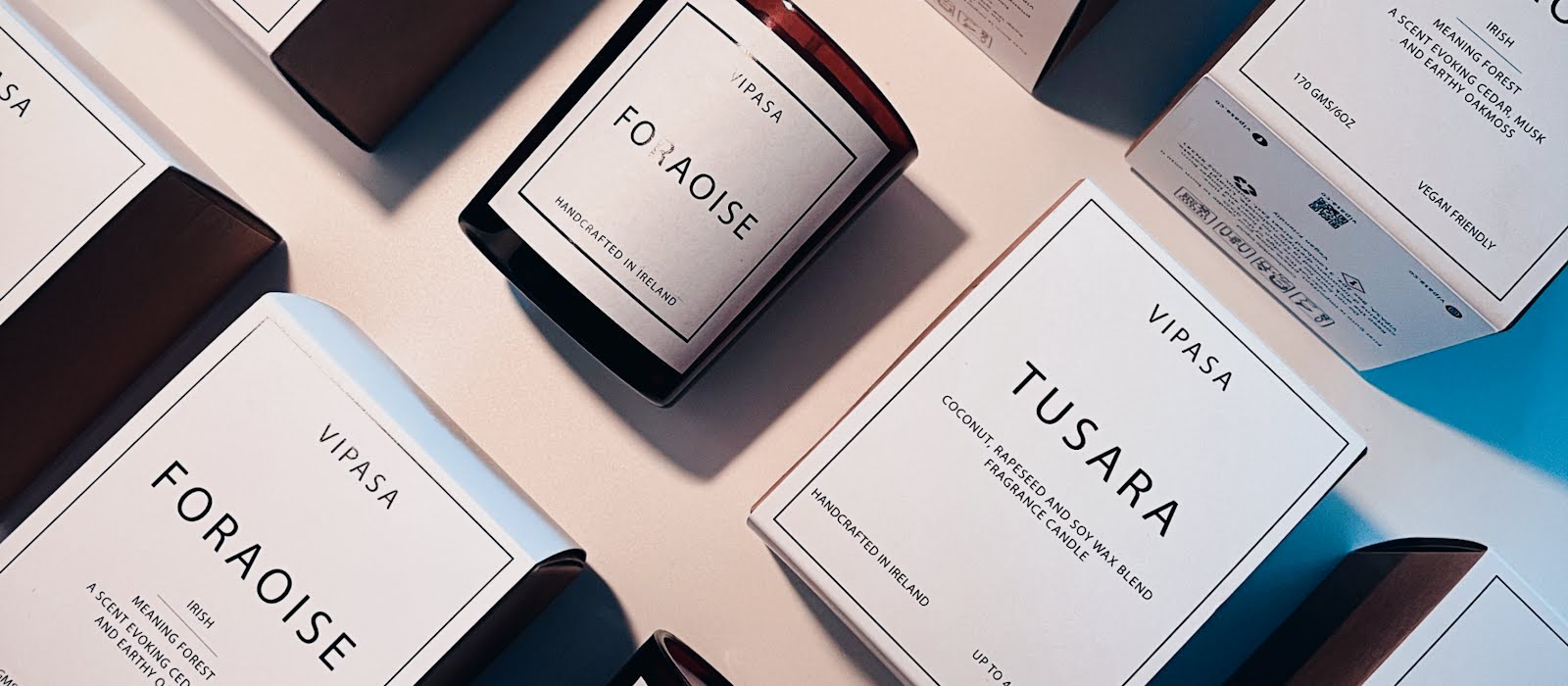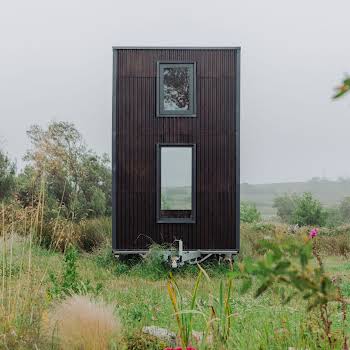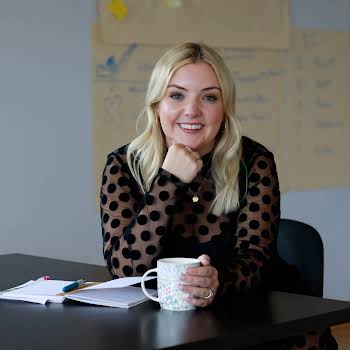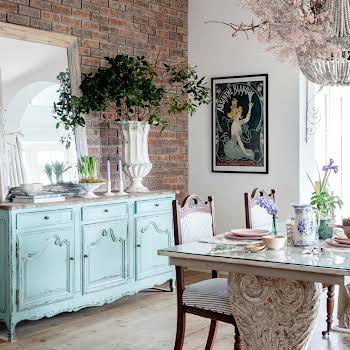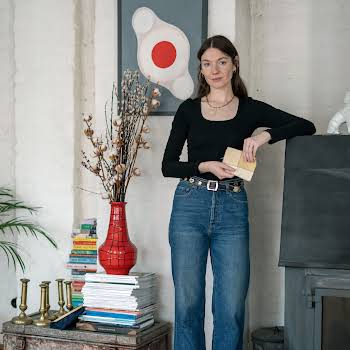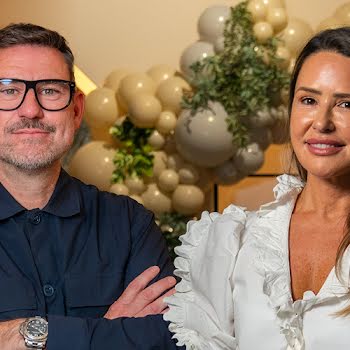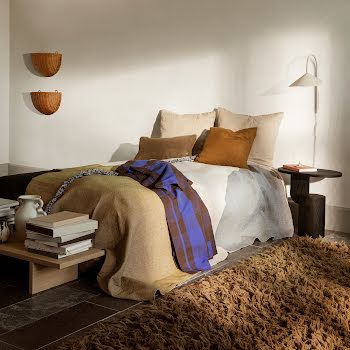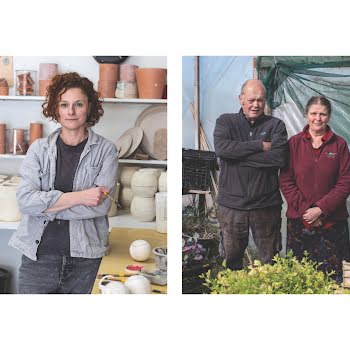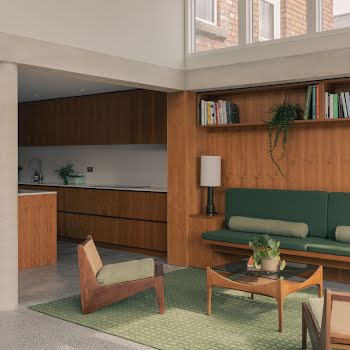
The pandemic, it seems, has either left many rightfully feeling lethargic or had the opposite effect; ensured a burst of creativity. For Ruchi, who has called Ireland her home for nearly a decade, it was the latter and lockdown resulted in her creating her own sustainable candle business, right down to the innovative wax and eco-friendly packaging.
For Ruchi, who hails from India, the start of her venture – VIPASA – was about more than the creation of candles, it was a labour of love as something to do for herself before anything else.
”Ireland is a home away from home for me; I love the Irish culture. And so I started making candles a couple of years ago, just for myself because I wanted particular fragrances in my house so I began experimenting. I have a very strong nose in general. Some of my friends use me as a sniffer dog if they cannot figure out where a certain scent is coming from! Then several friends were saying, ‘why don’t you sell them?’ And I said, ‘Oh, sure, I don’t know if I want to because I have a full-time job as an engineer.’ But then I’ve always been creative and I was still using my engineering brain being methodical and very precise – it forced me to follow a pattern and routine but in an enjoyable way.”
Something else it did was also prevent her from burning out, and she says spending too much time alone during lockdown gave her the kick she needed to get her project off the ground.
“I was very stressed at work, and I noticed that making candles was helping me therapeutically. Sometimes for five hours, when I was making and experimenting, I would not even notice the time going by. And it just helped me so much, because I was physically doing something but not thinking about anything else. It was a perfect way to be mindful.

Focused on sustainability
VIPASA, which means ‘not bound’ in the ancient Sanskrit language, however, is more than just candles. When Ruchi shared her story, what struck me was that it was also about giving something back to the world; every aspect of the candle, from the wax to the packaging, is created with sustainability at the fore. “I was very focused on the reusability factor, and wanting to make it Zero Waste (or as close as I could get to that!). I knew the candles needed to be refillable, for example, just as I knew the wax could not contain any toxins.”
Every candle is created, hand-poured, and made in small batches in Dublin and it’s the wax that is its shining factor. The innovative wax has been created with a unique blend of three natural waxes: Coconut, Rapeseed, and Soy with the blend being renewable and biodegradable, as well as vegan, cruelty-free and eco-friendly. This is important because, for those that don’t know, research says up to 95% of the candles available on the market are generally made of Paraffin Wax, a by-product of petroleum (not good for you or the environment). These candles produce black petrol soot which is (you guessed it) full of toxins.
But it doesn’t stop here. The premium fragrances used in each candle are phthalate-free, the packaging is from an FSC certified source, the tissue paper is made from recycled paper, and the ink is soy-based. The shipping box is made from 90% recycled cardboard and is fully recyclable. “I was very focused on that, how can I make the candles refillable, for example? Because it needs to be eco-friendly and everything I source has to be sustainable.
Creative passion
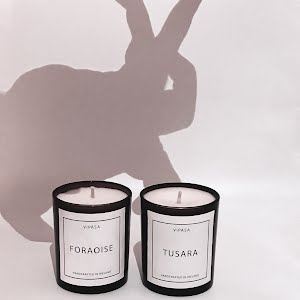
Every aspect of VIPASA is quite literally, handcrafted with care and done entirely in Ruchi’s spare time (and using her own resources). She has seemingly endless creativity; her website, social media, down to the brand logo, and even the shots of all the candles are created entirely by her. It’s perhaps a reminder of the work and dedication all business owners must do – graft until the work is done.
But her venture is all heart; she puts as much care into it as she does helping others. She has been supporting children from under-privileged backgrounds for a number of years, and she is committed to extending this support in a bigger way towards children’s shelter, food and education. To achieve this, a percentage from every sale goes towards the wellbeing of children in the Bright Hope Foundation, based in India, and recently, she has been working to raise donations for a number of causes in India who have been devastated thanks to the effects of COVID-19.
It's so hard to make something that's sustainable, good for the environment, and looks as you need it to – even I didn't realise at the start!
She also says she wanted to disband the stereotype that eco-friendly products can’t be luxurious.
“I wanted it to look luxurious as well because sometimes people think that if it is eco-friendly it has to get wrapped in brown paper and wrapped in thread. But it can be aesthetically beautiful and good for the world we live in.”











